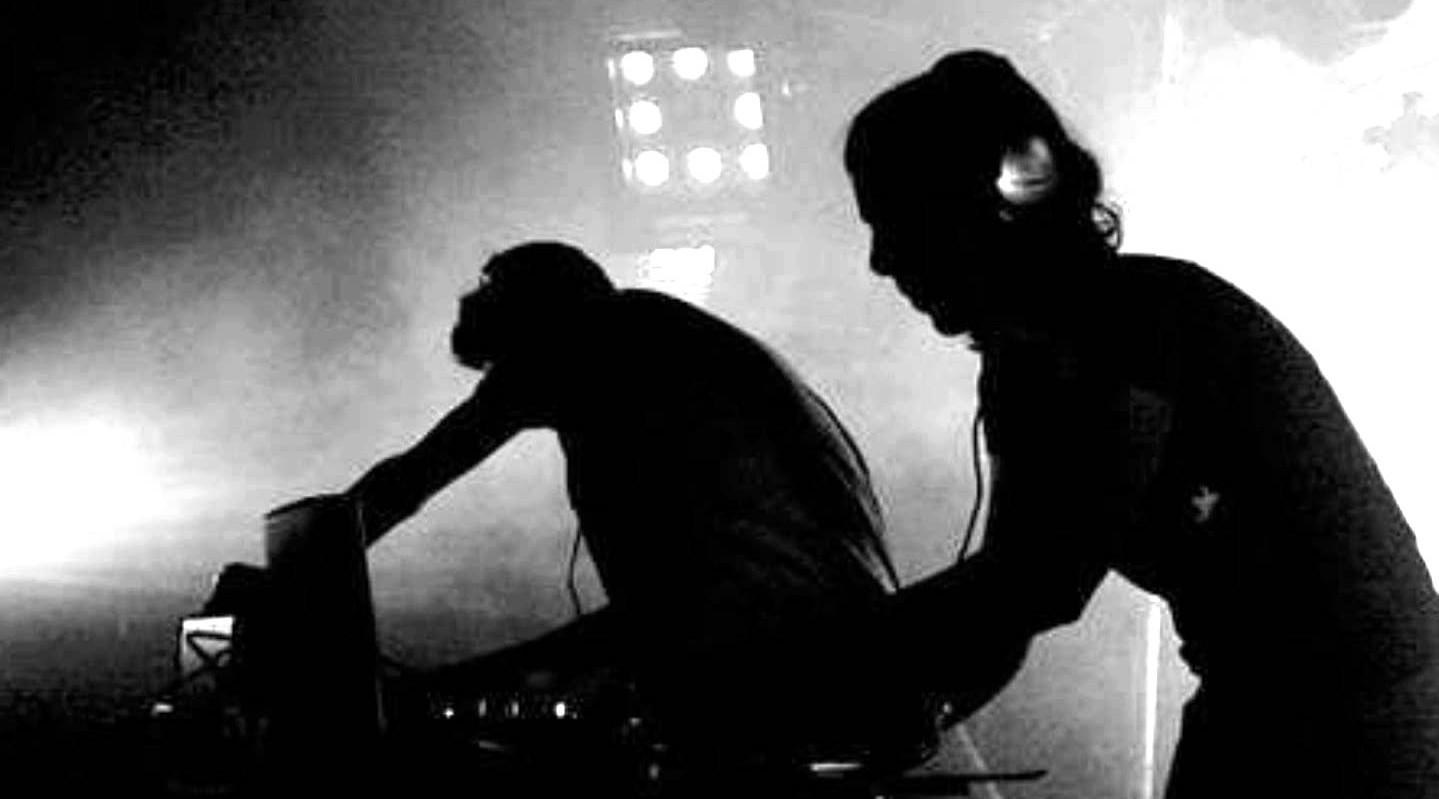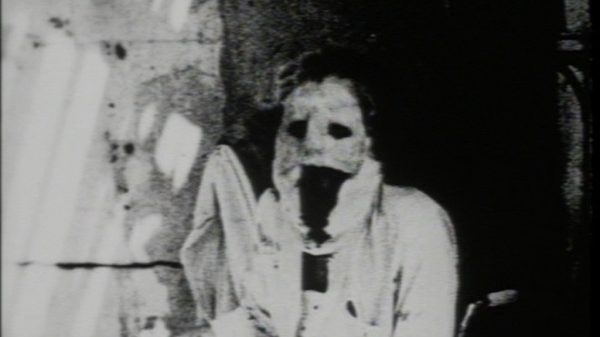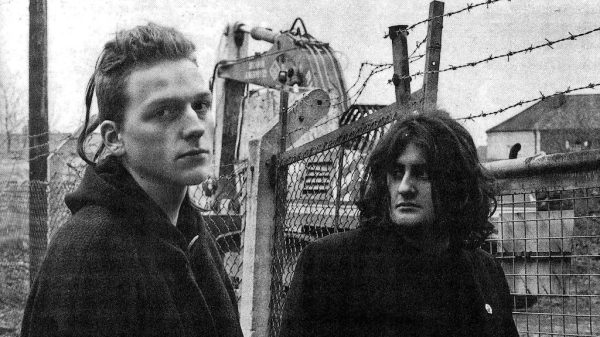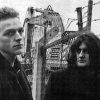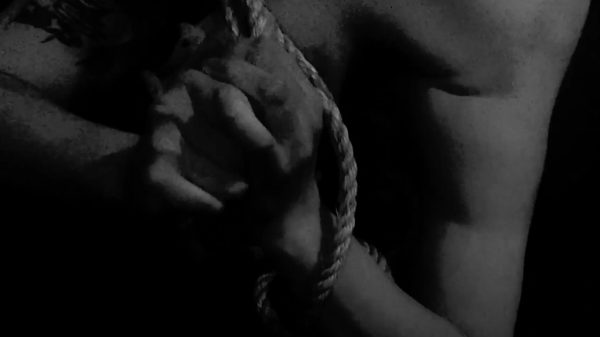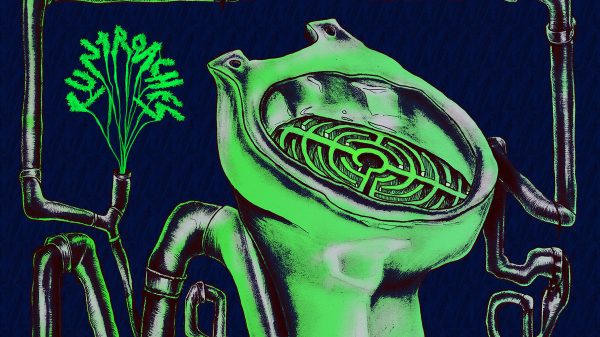Eschaton is the resulting merge of a stellar collaboration between Orphx (Christie and Rich) and Ancient Methods (Michael). In this interview, we discuss with all three members of Eschaton how this synergy came to be, the difficulties in collaborating through file sharing and their plans for the future. Dive in!
Hey guys! Firstly thanks for finding the time to do this interview, it is much appreciated! So, can you tell us how Eschaton came to be? Where and how did you meet and decide on the collaboration?
Christie: Orphx was on the bill at the first Ancient Methods show back in 2009. After that, we began corresponding a bit and I started the collaboration in 2010 when I recorded some music with Michael and his partner Conrad in Berlin. Sadly, that material was lost when their laptops were stolen at a gig in London. All four of us did some more recording the following year, but it really began to come together in 2013, when we finished the tracks for the first 12”.
How does the collaboration work between Orphx and Ancient Methods? How do you go about producing the tracks? Are you all involved from the ground up, or is does one come with the foundation of a song and then the other members work on top of that?
Rich: For the first 12” we worked remotely, sending files back and forth. We began by exchanging sounds and then each created the foundation for two tracks. Then we would send them back and forth until they were finished. For the second record, Michael and I recorded some tracks at his studio in Berlin and then we all worked on them separately, sending them back and forth until complete.
Also, since Orphx is based in Canada while Ancient Methods is based in Berlin, does that impact your creativity in any way, negative or positive?
Christie: It is more enjoyable to collaborate in person and the distance makes this difficult, but we are often in Berlin now so there are more opportunities to work together in the same studio.
Michael: I agree. I believe that we have a pretty good flow when we’re playing live together; due to the distance there is never much rehearsing, but I think we managed to keep a solid arc of suspense. For the same reason, I enjoy having a session with the guys much more than sending files back and forth.
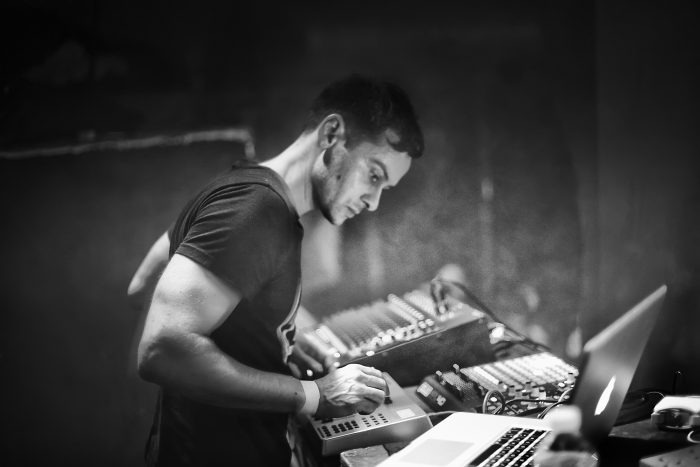
Ancient Methods
How would you compare your collaboration as Eschaton to your individual sounds as Orphx and Ancient Methods? What creative aspect is it that Eschaton manages to bring forward that the other projects do not?
Rich: Eschaton puts an emphasis on the industrial and doom influences in our music, and plays with religious and cataclysmic themes. On the most recent record, we experimented with some slower industrial tracks, and we want to explore this further.
Michael: For me, the most significant difference to my individual production is the general approach of the creation process. As I just mentioned, I love to just have a jam session with the guys and let the machines create a flow. When I am on my own, I have a concrete idea in my head and I produce it down to the last detail that this idea requires. So this is actually true for collaborations in general – naturally they are much more open for impromptu results, whereas my solo works are much more fixed on a plan.
You released an excellent first EP with Eschaton I, and now you follow it up with an even better one in Eschaton II. How would you compare the two albums sonically? What can you tell us about the evolution of the project? Personally, I found II to be quite harsher.
Rich: The industrial and doom influences are stronger on this record. We’ll see how the next one takes shape, but I think we will keep developing this.
Michael: I found II deeper and I believe it comes from the before mentioned differences in the production process. Furthermore, some tracks on the first record date from 2009, so there is quite a significant sonic leap. Certainly, the first release was a bit more dancefloor-friendly, but I like the direction the second release took.
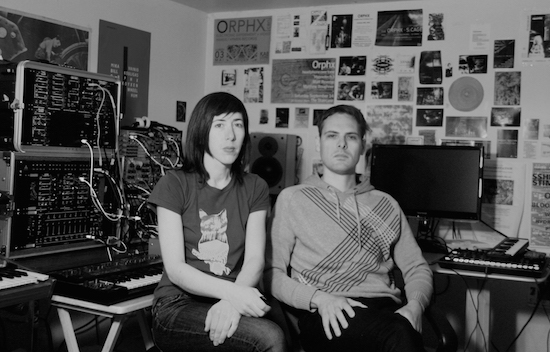
Orphx
What has been the main inspiration for Eschaton II? The name of the project, and the titles of your previous EP suggest a theological, eschatological leaning. This I believe has been expanded even more in II. Can you elaborate on your interest of these subjects?
Rich: I’ve always been very interested in religion and its relationship to culture and politics. Eschatological themes are particularly interesting, especially in an era when we are seeing these kinds of ideas and “doomsday” themes appear in everyday life and popular culture.
The first track of Eschaton II is “Deus Irae” (Latin for “God of Wrath),” which is also the title of a science fiction novel by Philip K. Dick and Roger Zelazny, which depicts, quite frighteningly, a post-apocalyptic religious society. Was that an influence in the EP? With its mechanical and dystopian tone, it would seem like the perfect soundtrack for this work.
Rich: Yes, that was the inspiration for the title and part of the inspiration for the EP.
You recently also released a video for “Answer My Prayer” directed by Dominic Marceau, which looks absolutely stunning. I think the video also brings out a quite manifesto-like statement from your music. How did the decision came to be on the video? Was Dominic given free roam over the concept? And why did you choose the specific track? What is it that made it stand out?
Rich: We asked Dominic to create a video for any track from the record and he choose “Answer My Prayer.” He put together a perfect visual representation of the ideas behind the music. I think it conveys the violence that is at work in North American culture and politics right now, and the way that religion is being used to encourage fear and justify hatred and violence.
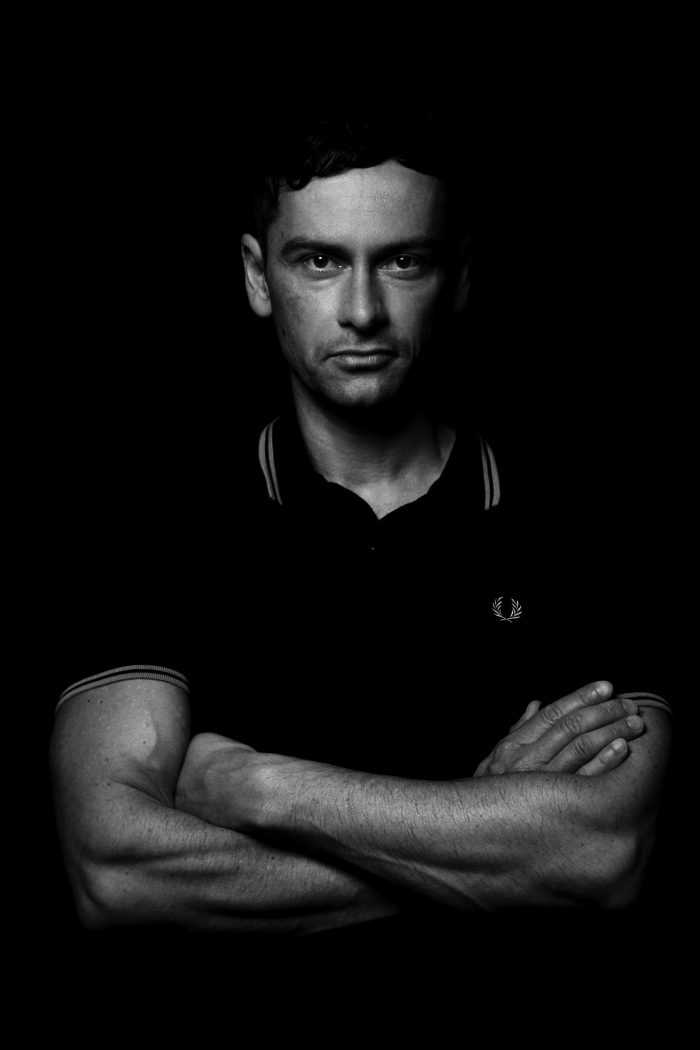
Ancient Methods
Orphx has been around for about twenty years, Ancient Methods close to ten. I would like to hear your opinion on technological changes that occurred in electronic music in that timespan and how did these affect the way you guys work?
Christie: Orphx began using only hardware and a four-track cassette recorder. We then learned how to sequence using MIDI and computer software. By the early 2000s, software had advanced considerably and we were using more software effects and virtual instruments than hardware. But after a few years, we missed the tactile elements of hardware, especially for live performance. I began exploring modular synthesizers and that has become central to the way we work now.
Michael: This is pretty similar to how I experienced it. As a teenager, I started to learn hardware, buying synths, drum machines and all that. But even back then, I mostly ended up staring at the computer screen, which was an Atari with Cubase sequencer at that time. Since I always had this aforementioned orderly approach of realizing my musical ideas, I found it pretty time consuming and less flexible to realize these ideas, especially when they tended to be a bit more complex. Needless to say, production software like Ableton came in handy and replaced a lot of gear. I still have some hardware, mostly synths, both for sound and for haptic reasons. This said, I believe the technological change did not much change the way I work, but it helped me to create faster.
Also I would like to know your opinion on the current state of the experimental electronic scene. Which do you think are the more interesting projects and artists today? Can you predict what will be the direction experimental music will take in the next few years? Any trends that you are detecting?
Rich: There are too many interesting artists to mention just a few. There is a wealth of good music out there and I think we are all listening to a wide variety of music, old and new. Within techno, I’m interested in artists who are bringing more melody into their work as well as those who are experimenting with sound design and rhythmic structures. I’ve recently been enjoying many of the releases on the Kvitnu label – highly recommended.
Michael: I guess actually I am not following enough experimental music to allow me to form an opinion on its current state. In general, I feel everything is merging and this has always been the most interesting aspect of music.
Do you guys any future plans for releases? Be it Orphx. Ancient Methods or Eschaton?
Rich: There will be a new Orphx album in November. Sonic Groove will be releasing it on vinyl and digitally, and Hands will be releasing it on CD. There were also be a new album from my project Oureboros on Ant Zen in October. And a number of other releases coming in 2017.
Michael: There will be certainly new Ancient Methods releases in the future.
Should we expect a full-length album from Eschaton?
Michael: Yes.
Rich: Yes, at some point.
Do you have any upcoming gigs?
Michael: A few, yes. I recommend your readers check the usual social media channels for announcements.
Rich: Orphx will be back in Europe in October, and there will be other shows in Japan and the US this fall. There will be more live appearances from Eschaton in 2017.
Alright guys! Thanks again very much for finding the time to answer my questions! Looking forward to listening to more music from you! All the best!
Thank you!
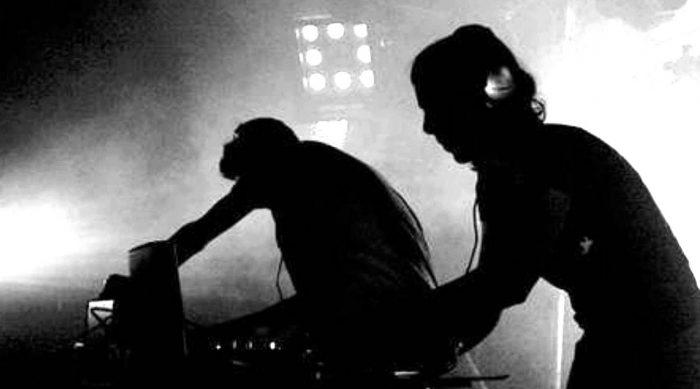
Eschaton

